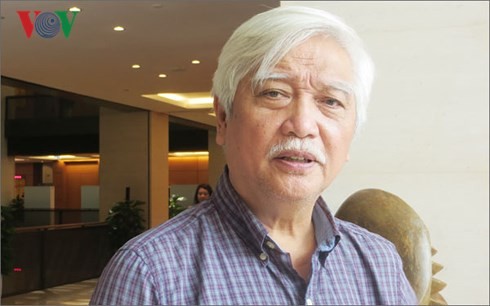(VOVWORLD) -The 3-day Q&A session of the National Assembly’s 4th meeting will begin on Thursday and will be broadcast live nationwide.
 NA deputy Duong Trung Quoc for Dong Nai province NA deputy Duong Trung Quoc for Dong Nai province
|
A Q&A session is an important way for the National Assembly to perform its oversight function. Deputies and voters have the right to question cabinet members and air their concerns. The National Assembly and the government will then discuss the issues and seek appropriate solutions.
4 key issues
4 cabinet members will attend the Q&A session. Finance Minister Dinh Tien Dung will answer questions on taxes, customs, and public debt management. Governor of the State Bank of Vietnam Le Minh Hung will answer questions on monetary policy to support production, credit growth, and the banking system. Chief Judge of the Supreme People’s Court Nguyen Hoa Binh will be questioned on civil and administrative trials and the responsibility of the court staff for judicial reform. Minister of Information and Communications Truong Minh Tuan will answer questions on applying IT to administrative reform, building an e-government, and state management of media and communications.
Secretary General and Head of the National Assembly Office Nguyen Hanh Phuc said:“We have summarized deputies’ opinions in 24 categories, covering pressing social and economic issues that concern a lot of people. The National Assembly will ask the government and National Assembly Committees to oversee resolution of all issues and will hold cabinet members responsibility for what they have pledged to do.”
Keeping promises to meet voters’ aspiration
The Q&A session creates an open, frank, democratic atmosphere at National Assembly meetings. The length of a Q&A session is now 3 days. In the past it was 2 and a half days. Deputies and voters can raise their questions anytime, not only at Q&A sessions.
Duong Trung Quoc, a deputy for Dong Nai province, says: “We send voters’ questions in writing form to government officials and relay the answers to the voters. A Q&A session merely identifies problems. The post-Q&A period is more important. The National Assembly requires ministries and sectors to report their implementation of commitments they made in previous Q&A sessions.”